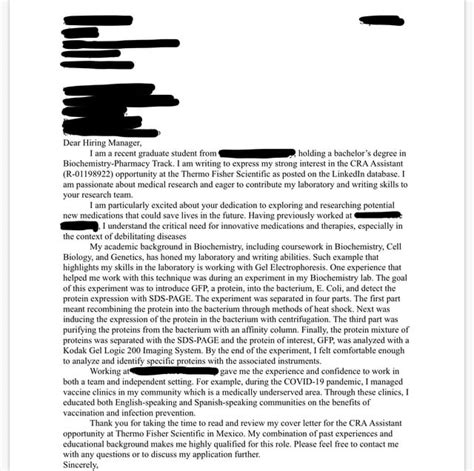How To Get Into Clinical Research Without Experience
Ronan Farrow
Mar 24, 2025 · 3 min read

Table of Contents
How to Get Into Clinical Research Without Experience
Breaking into the field of clinical research without prior experience can feel daunting, but it's definitely achievable with the right approach. This guide will provide a roadmap to help you navigate this journey and land your dream role.
1. Understand the Landscape of Clinical Research
Before diving in, it's crucial to understand the different roles within clinical research. This isn't a monolithic field; it encompasses various specializations and career paths. Some common roles include:
- Research Coordinator: This is often an entry-level position, involving tasks like recruiting participants, managing study data, and maintaining regulatory compliance.
- Clinical Research Associate (CRA): CRAs monitor clinical trials at various sites, ensuring adherence to protocols and guidelines. This generally requires more experience.
- Data Manager: This role focuses on organizing, cleaning, and analyzing clinical trial data. A background in statistics or data management is often preferred.
- Biostatistician: These professionals analyze clinical trial data to draw meaningful conclusions. This role typically requires a master's or doctoral degree.
Understanding these different paths will help you focus your efforts and tailor your resume and cover letter accordingly. Researching these roles will help you identify the best entry point for your skills and aspirations.
2. Build a Strong Foundation: Education and Skills
While a specific degree isn't always mandatory for entry-level positions, a strong educational foundation significantly boosts your chances. Here's what to consider:
- Relevant Bachelor's Degree: A degree in biology, health sciences, nursing, or a related field is highly advantageous. This demonstrates a foundational understanding of medical terminology, research methodologies, and scientific principles.
- Online Courses and Certifications: Numerous online platforms offer courses and certifications in clinical research, GCP (Good Clinical Practice), and related areas. These credentials add valuable weight to your application. Consider focusing on courses that cover aspects like data management, regulatory compliance, or specific clinical trial methodologies.
- Volunteer or Shadowing Opportunities: Volunteering at a research institution, hospital, or clinic can provide invaluable hands-on experience and networking opportunities. Even a few weeks of shadowing a research professional can significantly enhance your understanding of the field and strengthen your resume.
3. Network Strategically: Your Key to Success
Networking is paramount in breaking into any field, and clinical research is no exception. Here are some effective strategies:
- Attend Industry Events: Conferences, workshops, and seminars related to clinical research offer excellent networking opportunities. Prepare questions and engage actively with attendees and speakers.
- LinkedIn: Optimize your LinkedIn profile to highlight your skills and experience, even if it's limited. Connect with professionals in clinical research, participate in relevant groups, and engage in discussions.
- Informational Interviews: Reach out to professionals in clinical research for informational interviews. These conversations can provide valuable insights into the field and help you identify potential job openings. Prepare thoughtful questions and be respectful of their time.
4. Craft a Compelling Resume and Cover Letter
Your resume and cover letter are your first impression. Make them count:
- Highlight Transferable Skills: Even if you lack direct clinical research experience, emphasize transferable skills such as data entry, organization, attention to detail, communication, and teamwork. Quantify your achievements whenever possible to showcase your impact.
- Tailor Your Application: Customize your resume and cover letter to each specific job application. Highlight the skills and experiences most relevant to the particular role. Show that you understand the specific requirements and responsibilities of the position.
- Proofread Meticulously: Errors in grammar and spelling can significantly hurt your chances. Ask a friend or mentor to review your application before submitting it.
5. Persistence and Patience: The Long Game
Breaking into clinical research without prior experience takes time and persistence. Don't get discouraged by rejections. Learn from each application and interview, and keep refining your approach. Your dedication and persistence will eventually pay off.
By following these steps, you'll significantly increase your chances of successfully entering the rewarding field of clinical research. Remember that a proactive and strategic approach, combined with consistent effort, is the key to unlocking your career aspirations.
Featured Posts
Also read the following articles
| Article Title | Date |
|---|---|
| How To Clean A Stainless Steel Grill Exterior | Mar 24, 2025 |
| How To Find Leak In Pond Liner | Mar 24, 2025 |
| How To Cook Bear Roast | Mar 24, 2025 |
| How To Concealed Carry In Gym Shorts | Mar 24, 2025 |
| How To Dispose Of Old Road Flares | Mar 24, 2025 |
Latest Posts
-
How Long After Bbl Laser Can I Workout
Apr 05, 2025
-
How Long After Banding Goats Are They Sterile
Apr 05, 2025
-
How Long After Applying Fungicide Can I Fertilize
Apr 05, 2025
-
How Long After Alcohol Can I Take Xanax
Apr 05, 2025
-
How Long After A Storm Can I File A Claim
Apr 05, 2025
Thank you for visiting our website which covers about How To Get Into Clinical Research Without Experience . We hope the information provided has been useful to you. Feel free to contact us if you have any questions or need further assistance. See you next time and don't miss to bookmark.
